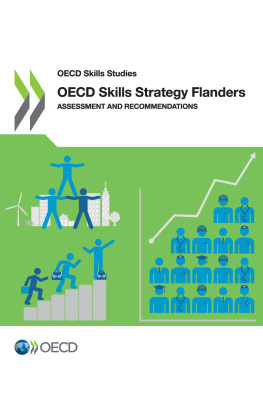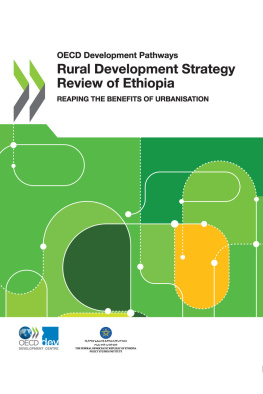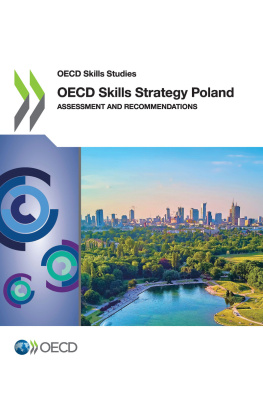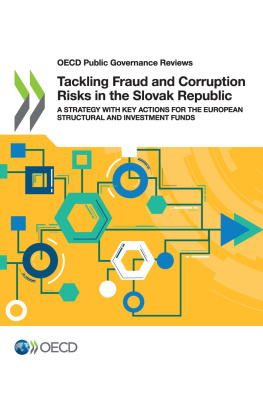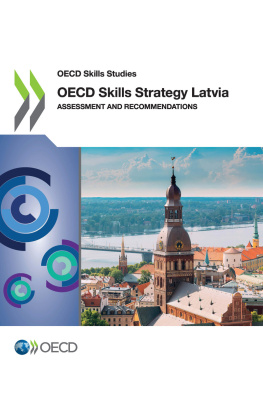OECD - OECD Skills Strategy Slovak Republic
Here you can read online OECD - OECD Skills Strategy Slovak Republic full text of the book (entire story) in english for free. Download pdf and epub, get meaning, cover and reviews about this ebook. year: 2020, publisher: OECD Publishing, genre: Politics. Description of the work, (preface) as well as reviews are available. Best literature library LitArk.com created for fans of good reading and offers a wide selection of genres:
Romance novel
Science fiction
Adventure
Detective
Science
History
Home and family
Prose
Art
Politics
Computer
Non-fiction
Religion
Business
Children
Humor
Choose a favorite category and find really read worthwhile books. Enjoy immersion in the world of imagination, feel the emotions of the characters or learn something new for yourself, make an fascinating discovery.
OECD Skills Strategy Slovak Republic: summary, description and annotation
We offer to read an annotation, description, summary or preface (depends on what the author of the book "OECD Skills Strategy Slovak Republic" wrote himself). If you haven't found the necessary information about the book — write in the comments, we will try to find it.
OECD: author's other books
Who wrote OECD Skills Strategy Slovak Republic? Find out the surname, the name of the author of the book and a list of all author's works by series.
OECD Skills Strategy Slovak Republic — read online for free the complete book (whole text) full work
Below is the text of the book, divided by pages. System saving the place of the last page read, allows you to conveniently read the book "OECD Skills Strategy Slovak Republic" online for free, without having to search again every time where you left off. Put a bookmark, and you can go to the page where you finished reading at any time.
Font size:
Interval:
Bookmark:

OECD (2020), OECD Skills Strategy Slovak Republic: Assessment and Recommendations , OECD Skills Studies, OECD Publishing, Paris, https://doi.org/10.1787/bb688e68-en .
The information in this document with reference to Cyprus relates to the southern part of the Island. There is no single authority representing both Turkish and Greek Cypriot people on the Island. Turkey recognises the Turkish Republic of Northern Cyprus (TRNC). Until a lasting and equitable solution is found within the context of the United Nations, Turkey shall preserve its position concerning the Cyprus issue.
The Republic of Cyprus is recognised by all members of the United Nations with the exception of Turkey. The information in this document relates to the area under the effective control of the Government of the Republic of Cyprus.
Developing and using peoples skills effectively is crucial for Slovakias ability to thrive in an increasingly interconnected and rapidly changing world.
Slovakia is particularly exposed to the effects of globalisation, digitalisation and demographic change, and should build on its current strengths and use them as a foundation to introduce new policies that better equip society to respond to a constantly changing environment. All members of society will need a stronger and more well-rounded set of skills, including cognitive, social and emotional, and job-specific skills that are aligned with labour market needs and effectively used in individual workplaces.
Slovakia has already achieved relatively strong skills performance in various areas. In terms of developing peoples skills, the tertiary attainment rate has improved substantially and the foundational skills of adults are comparatively strong. With respect to using peoples skills, the unemployment rate in Slovakia is at record low levels and wages are on the rise.
However, Slovakia still faces a number of complex skills challenges. The skills of youth are lagging behind the OECD average in reading and science, and declining. Skills imbalances are high, with skills shortages particularly prevalent in knowledge and technology-intensive sectors. Adult learning culture is underdeveloped, participation in adult learning is low, and those most in need of continuous education participate the least. In the workplace, skills are not currently used to their full potential.
In recent years, Slovakia has enacted wide-ranging skills policy reforms spanning all levels of education and training, as well as many areas of labour market policy. In this respect, continued stakeholder engagement and impact monitoring will remain essential for implementing Slovakias skills reforms.
Slovakia has developed the National Programme for the Development of Education (NPRVaV 2018-2027) to set the countrys priorities for skills development and activation. To provide input on the implementation of this programme, and to further support Slovakia in its reform agenda, the OECD has conducted a collaborative and tailored National Skills Strategy project. This has involved detailed analysis and widespread engagement with stakeholders, leading to several tailored recommendations outlined in this report.
The OECD stands ready to support the Slovak Republic as it seeks to implement effective skills policies and continue its transition to a knowledge-based economy and society.
This report is part of a series of country projects within the OECD programme of work on Building Effective National Skills Strategies.
The OECD team wishes to thank Minister of Education, Science, Research and Sport, Martina Lubyov; State Secretary of the Ministry of Education, Science, Research and Sport, Oga Nachtmannov; State Secretary of the Ministry of Labour, Social Affairs and Family, Branislav Ondru; and State Secretary of the Ministry of Economy, Rastislav Chovanec, for their commitment to this project.
The OECD is grateful to the Slovak National Project Team for its invaluable guidance and input throughout the project, and its help convening and organising the stakeholder workshops. We are particularly grateful to the National Project Leader, Head of the Education Policy Institute at the Ministry of Education, Science, Research and Sport, Michal Reh for his strong leadership and co-ordination of the National Project Team, which included, in alphabetical order: Anna aploviov (Ministry of Economy), Michal Dene (Ministry of Education, Science, Research and Sport), Pavol Gal (Ministry of Education, Science, Research and Sport; Education Policy Institute), Luba Habodaszov (Ministry of Finance, Institute for Financial Policy), Karol Jakubk (Ministry of Education, Science, Research and Sport), Jozef Jurkovi (Ministry of Education, Science, Research and Sport), Monika Pacolkov (Ministry of Labour, Social Affairs and Family) and Jn Toman (Ministry of Education, Science, Research and Sport, Education Policy Institute). We are also grateful to Vladislav Ujhzi (Permanent Delegation of the Slovak Republic to the OECD) and to supporting experts from the Education Policy Institute: Michaela Bednrik, Dvid Martink, Mria Perignthov and Samo Varsik and Ivana Studen from the Slovak Academy of Sciences.
We also wish to thank the Head of the Representation of the European Commission in Slovakia, Ladislav Miko; and Deputy Head, Radim Dvok.
Our warm thanks go to the many government and non-government representatives who generously shared their insights during workshops, focus groups and bilateral interviews with the OECD team in Bratislava, and via written input. Over 100 stakeholders participated in the various meetings that took place during OECD missions. These stakeholders represented ministries, government agencies, subnational authorities, education and training institutions, businesses and business associations, unions and community associations, academia, civil society and other organisations. The OECD would also like to thank the staff of the Ministry of Education, Science, Research and Sport and the Education Policy Institute for their excellent organisation of the stakeholder workshops and for their hospitality in hosting these events. We also thank the many experts who volunteered as moderators and note-takers during the workshops.
Font size:
Interval:
Bookmark:
Similar books «OECD Skills Strategy Slovak Republic»
Look at similar books to OECD Skills Strategy Slovak Republic. We have selected literature similar in name and meaning in the hope of providing readers with more options to find new, interesting, not yet read works.
Discussion, reviews of the book OECD Skills Strategy Slovak Republic and just readers' own opinions. Leave your comments, write what you think about the work, its meaning or the main characters. Specify what exactly you liked and what you didn't like, and why you think so.









